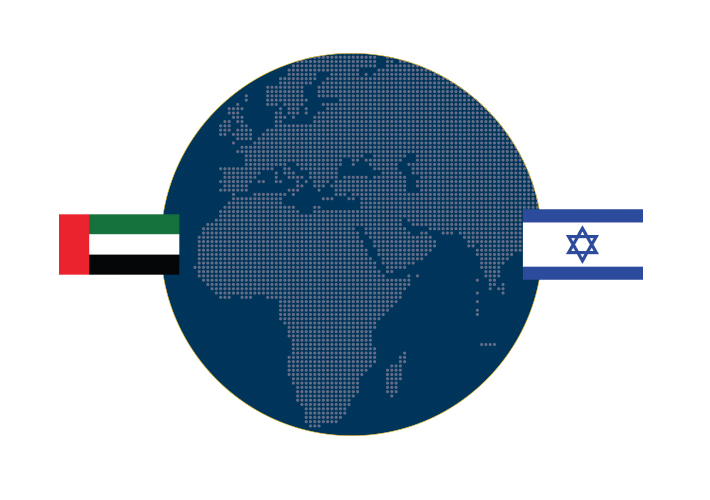
The Role of Standards in Israeli-Arab Relations
On Sept. 15, 2020, the United Arab Emirates (UAE), Israel, and Bahrain signed an agreement known as the Abraham Accords Peace Agreement. Among other things, the agreement aims to “acknowledge the important role of science, technology, and innovation in the growth of multiple key sectors and shall strengthen joint action and mutual cooperation in scientific and technological advancement.” Many expect that Israel and the UAE will look forward to new trade opportunities as Israel has one of the world’s most advanced high-tech sectors, and the UAE has a history of investing in such ventures.
Enter ASTM International standards. Through its Memorandum of Understanding (MoU) Program, which was started in 2001, ASTM currently has agreements with the national standards bodies in Israel, the UAE, and Bahrain. Since the signing of an agreement in 2008, the Emirates Authority for Standardization and Metrology (ESMA) has cited the use of 425 ASTM standards in its reports to ASTM. The Standards Institution of Israel (SII) has cited 367 ASTM standards in its annual reports to ASTM since 2007. A recent analysis has shown that over 65 ASTM standards have been commonly cited by both countries. The shared standards are under the jurisdiction of 15 different ASTM committees, with construction products, petroleum, and plastics being the most cited.
One thing is clear: Standards will play a role in the initiatives that Israel and the UAE will establish moving forward.
FOR YOU: What the USMCA Means for SDOs
Israel/UAE Cooperation
In the same way that the Abraham Accords may be a “game changer” for de-escalation of tensions between the Arab states and Israel, this agreement may also mean an increase in the exchange of technology and other areas of mutual benefit. ASTM has active members from both countries. Israel has strong representation in the committees on additive manufacturing technologies (F42) and unmanned aircraft systems (F38). For example, Eviation Aircraft, an Israel-based developer and manufacturer of electric aircraft, was profiled in the March/April 2020 issue of Standardization News. And the number of UAE members in ASTM International was bolstered by the launch of the ASTM International UAE Chapter in September 2019. In addition, as host of the delayed world Expo 2020, the UAE is poised to showcase creativity, innovation, and collaboration globally.
In a recent interview, Dalia Yarom, ASTM board member and director of the Standardization Division of the Standards Institution of Israel (SII), talked about how much could be gained from the new cooperation in this region and the excitement of ASTM board members about the future potential for the countries because of this agreement.
According to Yarom, in order to facilitate trade, it will be important for the countries involved to have common standards. SII, by law, must adopt international standards first, and it considers ASTM standards as international under the principles set out in the World Trade Organization’s Technical Barriers to Trade Agreement. She also points out that many ASTM standards have already been adopted by SII in the areas of petroleum and water. In addition, SII has exclusively chosen ASTM standards for additive manufacturing to be used by its high-tech industries. In fact, SII has a special budget to make sure some of the startup companies from Israel are actively participating in F42 meetings.
ASTM board member Amer Bin Ahmed is managing director of Knauf Middle East, a subsidiary partner of the international building materials company Knauf. He has been working on implementing standards in his organization for a decade now and sees an opportunity to extend their cooperation to the Israel building material and construction market. “I look forward to benchmarking products and services which can be exchanged,” Bin Ahmed says. He also looks forward to “taking advantage of the huge talent pool from the two countries and working through ESMA in the UAE to develop UAE national standards to help implement new technologies now accessible.”
Benefit to U.S. Companies
Danny Sebright, a former U.S. government official who served as a diplomat in Tel Aviv, Israel, for three years and served 10 years on the Israel desk with the U.S. Department of Defense, is now serving as president of the U.S.-U.A.E. Business Council. He sees great opportunity in the agreement. “U.S. companies already doing business in the UAE and Israel can be the glue to hold the new relationship together,” he said during a recent webinar highlighting the benefits of the new agreement. “High-tech U.S. companies like Apple, Google, and Microsoft already have operations in both countries, and all parties involved can now take advantage of the exchange of expertise across borders.”
The Business Council reports that there is much to gain through commercial cooperation and exchange, with the United States acting as the bridge between the two nations. An August joint statement issued by the White House outlined plans for Israeli and Emirati delegations to “sign bilateral agreements regarding investment, tourism, direct flights, security, telecommunications, technology, energy, healthcare, culture, the environment, and other areas of mutual benefit.”
The signing of the Abraham Accords is an exciting beginning for Israel and the UAE that will likely lead to future agreements with other Arab countries such as Bahrain, which has already joined the partnership. With ASTM International’s footing already firmly established in the region, it is anticipated that ASTM will continue to play a key role in the success of these new collaborative efforts. ■
James Olshefsky is director of external relations, global cooperation, at ASTM International.
 SN Home
SN Home Archive
Archive Advertisers
Advertisers Masthead
Masthead RateCard
RateCard Subscribe
Subscribe Email Editor
Email Editor